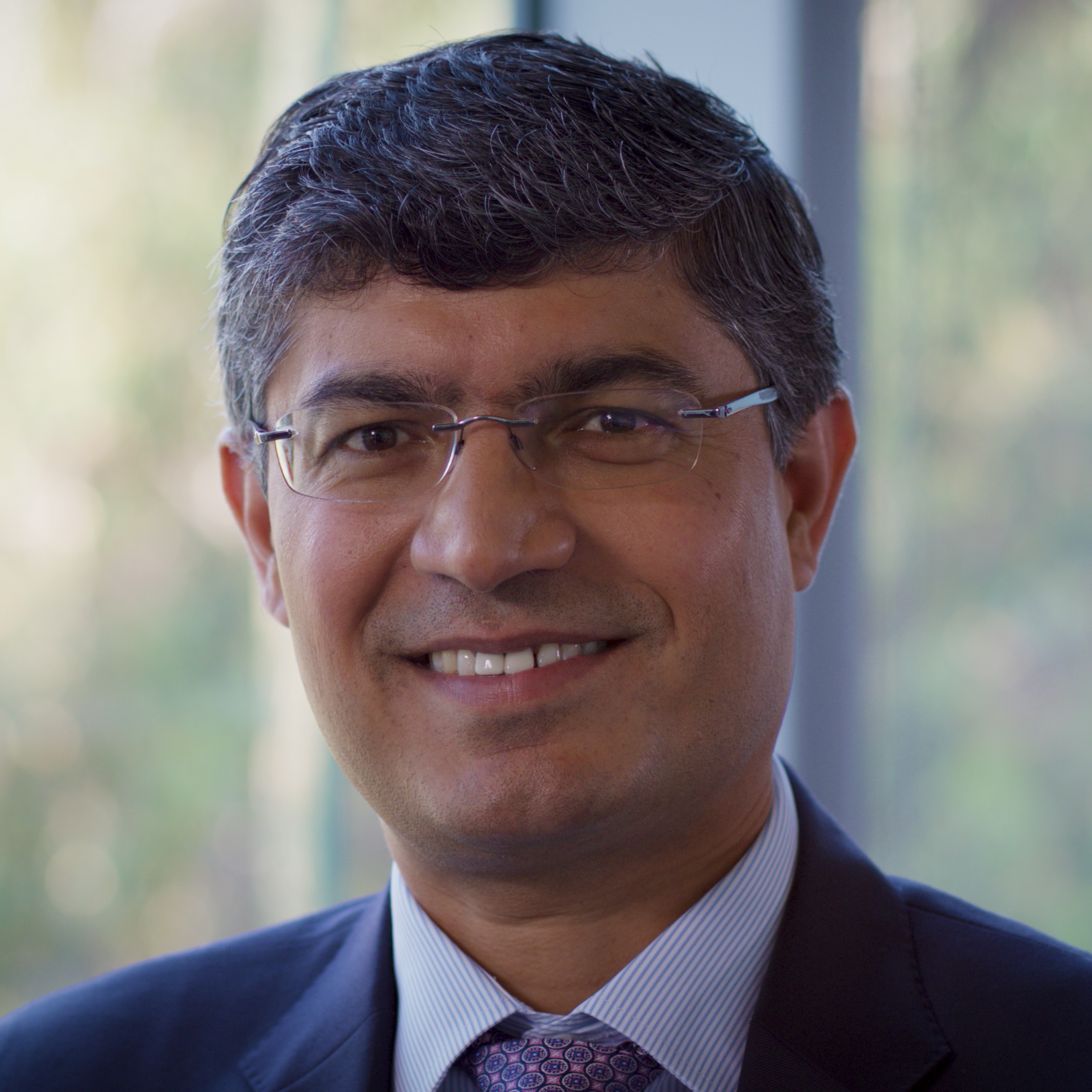ENLIVEN: Pegozafermin Could Reduce, Improve Fibrosis in NASH
Pegozafermin was associated with improvements in fibrosis and could contribute to a resolution of NASH, according to the results of the phase 2b ENLIVEN trial.
Rohit Loomba, MD, MHSc
Credit: American Association for the Study of Liver Diseases

Results of a phase 2b trial presented at the European Association for the Study of the Liver (EASL) Congress 2023 provide evidence suggesting pegozafermin could lead to improvements in fibrosis among patients with nonalcoholic steatohepatitis (NASH).
Simultaneously published in the New England Journal of Medicine, results of the trial indicate more than 1-in-4 patients receiving 30 mg and 44 mg pegozafermin met the criteria for fibrosis improvement compared to 7% among the placebo group, with parent company 89bio noting plans to discuss possible advancement into phase 3 trials for NASH with regulatory agencies in the second half of 2023.1
"As a physician, I know how important it is to provide patients with therapies that can be impactful across a broad population of individuals with NASH, especially ones that can easily blend into their daily lives,” said lead investigator Rohit Loomba, MD, MHSc, chief of the Division of Gastroenterology and Hepatology at University of California San Diego School of Medicine.2 “It’s both incredibly encouraging and exciting to see the positive, consistent results from this research across all aspects – efficacy, safety, tolerability, and dosing convenience.”
A long-acting glycopegylated fibroblast growth factor 21 (FGF21) analogue, pegozafermin is in development for treatment of both NASH and hypertriglyceridemia.2 At the American College of Cardiology’s (ACC) 2023 Annual Scientific Session, Deepak Bhatt, MD, MPH, of Mount Sinai Heart, presented data from the phase 2 ENTRIGUE trial in patients with severe hypertriglyceridemia. In the trial, results indicate use of pegozafermin was associated with an a placebo-corrected median reduction in triglyceride levels of 42.6% (95% Confidence interval [CI], -56.29 to -22.9; P = .001), with 79.7% of users reducing triglyceride levels to less than 500 mg/dL compared to just 29.4% of the placebo group.3
At the EASL Congress 2023, Loomba presented the results of the phase 2b ENLIVEN trial, which enrolled a population of patients aged 21-75 years with biopsy-confirmed NASH and stage F2 or F3 fibrosis. A randomized, double-blind, 24-week trial, participants were randomized to subcutaneous pegozafermin 15 mg or 30 mg weekly, pegozafermin 44 mg once every 2 weeks, or placebo on a weekly or biweekly basis.1
Overall, 222 patients underwent randomization in the trial. The overall cohort had a mean age of 55.6 years, 39% were male, 94% were White, and 91% had stage F2 or F3 fibrosis at baseline. Of the 222, 219 received at least 1 dose of pegozafermin or placebo therapy.1
The primary outcomes of interest for the study were an improvement in fibrosis with no worsening of NASH at 24 weeks and NASH resolution without worsening of fibrosis at 24 weeks. Investigators defined an improvement in fibrosis as a reduction of 1 stage or greater.1
Upon analysis, investigators found the proportion of those achieving fibrosis improvement was 7% among those receiving placebo, 22% among the 15 mg pegozafermin group (difference vs placebo, 14 percentage points; 95% CI, −9 to 38), 26% among the 30 mg pegozafermin group (difference, 19 percentage points; 95% CI, 5 to 32; P = .009), and 27% among the 44mg pegozafermin group (difference, 20 percentage points; 95% CI, 5 to 35; P = .008). Further analysis indicated NASH resolution was achieved by 2% of those receiving placebo, 37% of those receiving 15 mg pegozafermin group (difference vs placebo, 35 percentage points; 95% CI, 10 to 59), 23% of those receiving 30 mg pegozafermin group (difference, 21 percentage points; 95% CI, 9 to 33), and 26% of those receiving 44 mg pegozafermin group (difference, 24 percentage points; 95% CI, 10 to 37).1
Results of the trial’s safety analysis suggested adverse events occurred among 95% receiving pegozafermin 15 mg, 85% of those in the pegozafermin 30 mg group, and 67% of the 44 mg group compared to 68% of those receiving placebo therapy. The most common adverse events in the trial were nausea, diarrhea, and injection-site erythema. Serious adverse events were reported by 5% of the pegozafermin 15 mg group, 4% of the 30 mg group, and 11% of the 44 mg group compared to 4% of those receiving placebo.1
“NASH is highly associated with metabolic syndrome and increased cardiovascular risk, driving its impact far beyond the liver. Data from ENLIVEN show the promise of FGF21 analogs and potential of pegozafermin as a mainstay treatment for NASH, given it addresses both liver pathology and the underlying metabolic overload that drives it,” said Arun J. Sanyal, MD, interim-chair of the Division of Gastroenterology, Hepatology and Nutrition at Virginia Commonwealth University.2 “I am thrilled to see the strong efficacy data across the two FDA approvable histology endpoints, potential to benefit patients already on GLP-1 therapies, and the impressive results across markers of total liver health, which is critically important for this patient population.”
References:
- Loomba R, Sanyal AJ, Kowdley KV, et al. Randomized, Controlled Trial of the FGF21 Analogue Pegozafermin in NASH [published online ahead of print, 2023 Jun 24]. N Engl J Med. 2023;10.1056/NEJMoa2304286. doi:10.1056/NEJMoa2304286
- Data from 89bio’s enliven phase 2b trial of Pegozafermin in patients with nonalcoholic steatohepatitis (NASH) published in the New England Journal of Medicine and simultaneously presented in a late-breaker session at the EASL International Liver Congress. 89bio, Inc. June 24, 2023. Accessed June 28, 2023. https://ir.89bio.com/news-releases/news-release-details/data-89bios-enliven-phase-2b-trial-pegozafermin-patients.
- Campbell P. Deepak Bhatt, MD, MPH: ENTRIGUE results inform Pegozafermin’s potential in severe hypertriglyceridemia. HCP Live. March 8, 2023. Accessed June 29, 2023. https://www.hcplive.com/view/deepak-bhatt-md-mph-entrigue-results-inform-pegozafermin-potential-in-severe-hypertriglyceridemia.